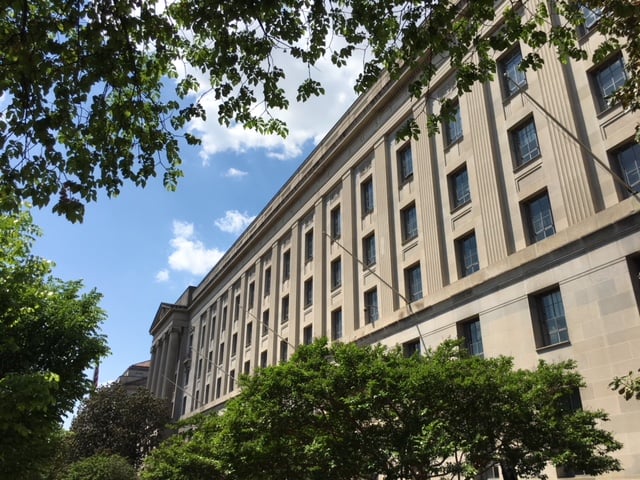Whenever
we
catch
lawyers
in
the
U.S.
turning
in
court
filings
filled
with
fake
cases
that
ChatGPT
spit
out,
they
earn
a
healthy
round
of
public
ridicule
and,
at
worst,
some
fines.
The
Department
of
Justice
tried
to
consign
people
to
an
El
Salvadoran
slave
camp
based
on
a
fake
Supreme
Court
quote
and
folks
barely
even
noticed.
The
British
legal
system
apparently
isn’t
as
easy
going,
with
a
panel
of
U.K.
judges
suggesting
a
lawyer
might
face
life
in
prison
for
submitting
AI-fabricated
case
law
in
a
civil
action.
If
that
seems
harsh,
just
remember
how
these
people
deal
with
divorce
actions:
It’s
hardcore,
man.
We
can’t
even
agree
to
keep
people
in
prison
for
trying
to
hang
Mike
Pence
and
the
U.K.
is
already
looking
at
disappearing
Edward
V
for
using
Claude
to
write
the
summary
judgment
motion.
To
be
clear,
the
judges
in
the
instant
matter
didn’t
order
junior
barristers
locked
up
in
the
Tower.
They
didn’t
even
explicitly
mention
life
imprisonment,
but
they
did
categorize
fake
cases
as,
in
some
cases,
rising
to
the
level
of
“perverting
the
course
of
justice.”
The
maximum
penalty
for
that
specific
charge?
Life.
In.
Prison.
It’s
the
corollary
to
the
American
“obstruction
of
justice,”
which
has
a
maximum
penalty
of
ZERO
as
long
as
you’re
the
president
of
the
United
States
at
the
time.
In
this
case,
“a
90
million
pound
($120
million)
lawsuit
over
an
alleged
breach
of
a
financing
agreement
involving
the
Qatar
National
Bank,”
according
to
the
Associated
Press,
the
filing
managed
to
cite
a
whopping
18
fake
cases.
The
client
informed
the
court
that
the
mistake
was
his
fault
and
not
his
solicitor’s.
Yeah…
except
lawyers
are
supposed
to
check
that
stuff.
Even
if
the
client
is
a
lawyer
—
like
when
former
Trump
fixer
Michael
Cohen
fed
his
attorneys
some
AI
hallucinations
they
then
filed
—
the
first
rule
of
lawyering
is
that
the
client
is
always
(potentially)
wrong.
The
whole
point
of
hiring
representation
is
to
make
sure
the
personally
aggrieved
client
isn’t
going
off
half-cocked.
No
one
is
going
to
jail
over
this
one,
making
the
opinion
more
akin
to
a
U.K.
professional
responsibility
version
of
Scared
Straight.
Fake
cases
in
a
$120
million
civil
dispute
are
not
going
to
fool
anyone
for
long.
Opposing
counsel
will
sniff
those
out
quickly,
so
anyone
larding
up
on
fake
cases
in
a
banking
dispute
is
either
doing
so
unintentionally
or
guilty
by
reason
of
insanity.
The
most
draconian
of
punishments
are
intended
for
the
unscrupulous
actor
trying
to
deliberately
mislead.
And
that’s
the
miscarriage
of
justice
that’s
coming
—
if
it
hasn’t
already
arrived.
Somewhere
out
there,
there’s
a
tenant
representing
themselves
because
attorneys
cost
too
much
and
Legal
Aid
had
its
budget
slashed
to
appease
Elon
Musk,
and
that
poor
soul
is
getting
buried
under
a
tsunami
of
fake
precedent
that
they’ll
never
be
able
to
look
up
and
the
overworked
judge
will
just
rubberstamp.
It
happens.
Worse,
we’re
going
to
hear
the
stories
of
the
unsophisticated
party
trying
to
keep
their
head
above
water
with
ChatGPT
and
not
the
deeper-pocketed
bully
who
can
make
up
cases.
Because
we’ll
catch
the
former
and
the
latter
might
skate
for
a
years
if
the
overwhelmed
justice
system
doesn’t
catch
it.
Maybe
the
U.S.
could
use
a
little
more
professional
fear
before
that
happens.
 Joe
Joe
Patrice is
a
senior
editor
at
Above
the
Law
and
co-host
of
Thinking
Like
A
Lawyer.
Feel
free
to email
any
tips,
questions,
or
comments.
Follow
him
on Twitter or
Bluesky
if
you’re
interested
in
law,
politics,
and
a
healthy
dose
of
college
sports
news.
Joe
also
serves
as
a
Managing
Director
at
RPN
Executive
Search.














